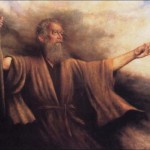I attended a Bible study the other day on the Old Testament. We are examining the early, sometimes gory, history of the early Hebrews. Critics of the Bible bemoan the actions of the Hebrew tribes as they took over Palestine. Easy to jettison claims to a unique religion. God’s people acted as brutally as all the others, right?
We would do well to read further, to treat this history as it is: history, warts and all. As the Hebrews matured, prophets stormed on the scene who railed against injustice. Conflict raged between the self-centered power that characterizes all civilizations, including that of the Hebrews, and a unique and growing awareness of God’s love for the world and all its people.
Amos, the prophet, thunders against the Wall Street of his time: “For I know how many are your transgressions, and how great are your sins—you who afflict the righteous, who take a bribe and turn aside the needy in the gate.” (Amos 5:11, RSV) “Let justice roll down like waters, and righteousness like an everflowing stream.” (Amos 5:24, RSV) “Hear this, you who trample upon the needy, and bring the poor of the land to an end . . .” (Amos 8:4, RSV)
The prophet Jonah learns that he must take God’s message to the Hebrews’ enemy, Nineveh, whether he wants to or not, for God loves Nineveh, too.
As relativism increases and the belief takes root that one religion is as good as any other, are we Christians even aware of the unique messages of our Bible?



Other countries censor content and not just rogue regimes such as the Iranian mullocracy. Poor people! http://www.baidu.com
Thanks for your comment and for your interest in free access to ideas and literature.